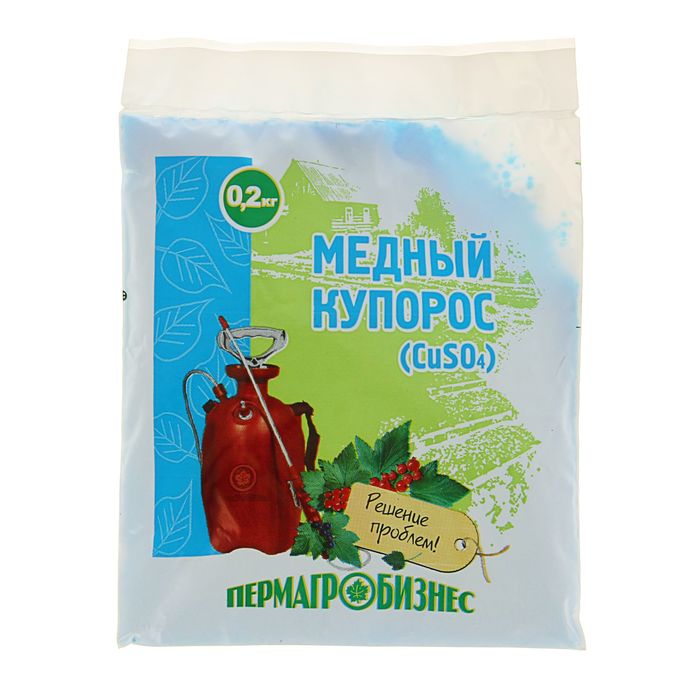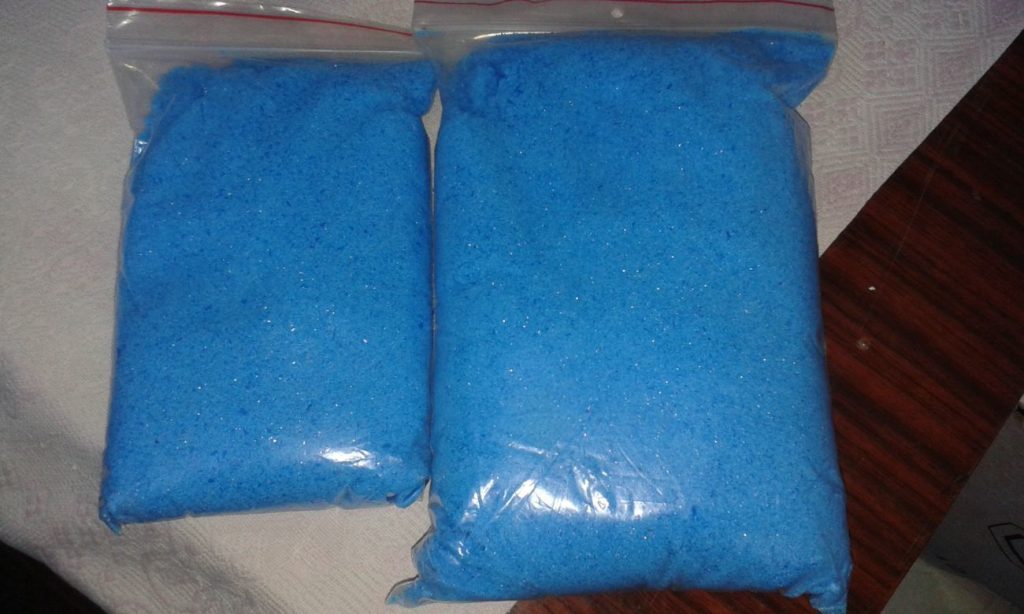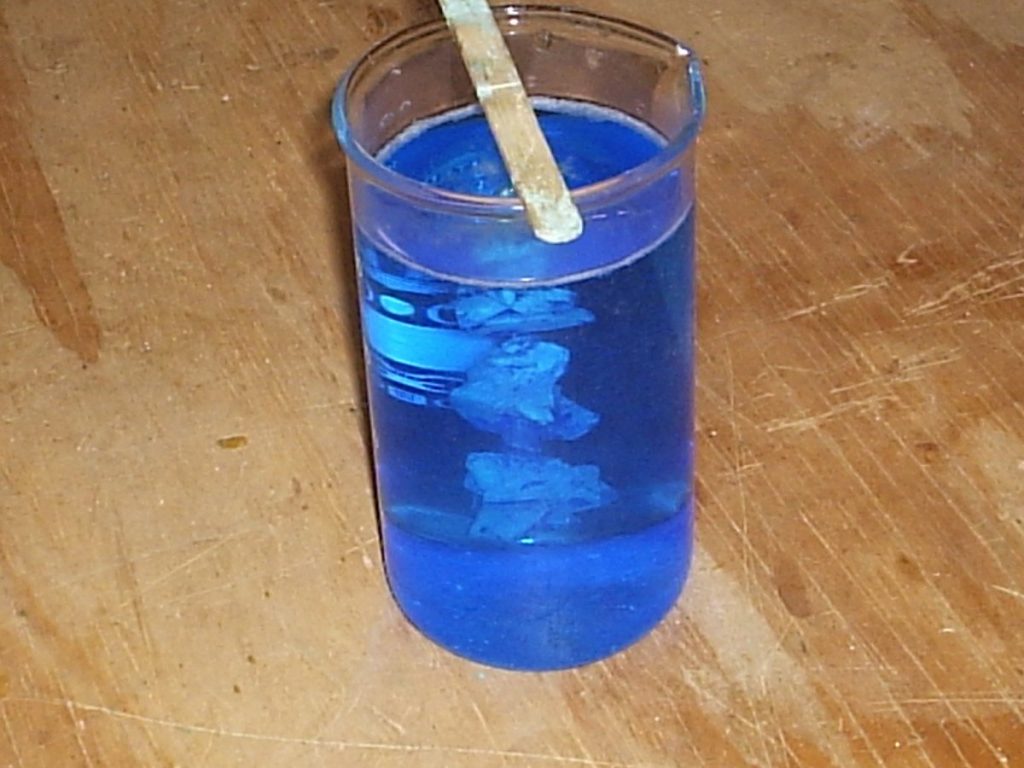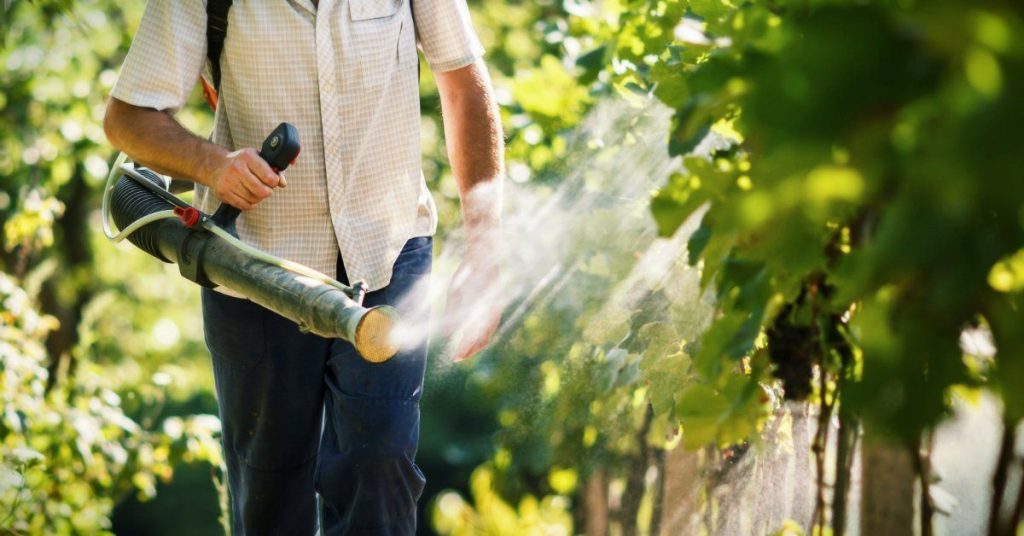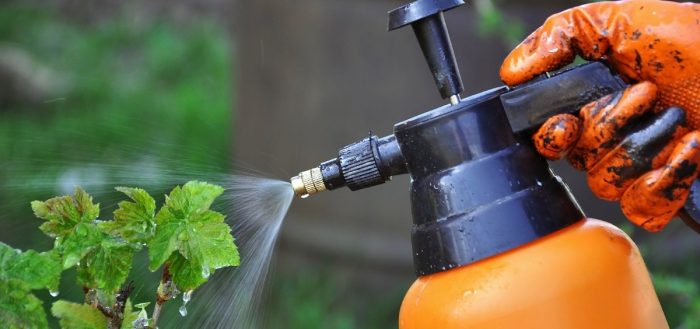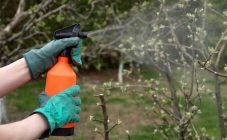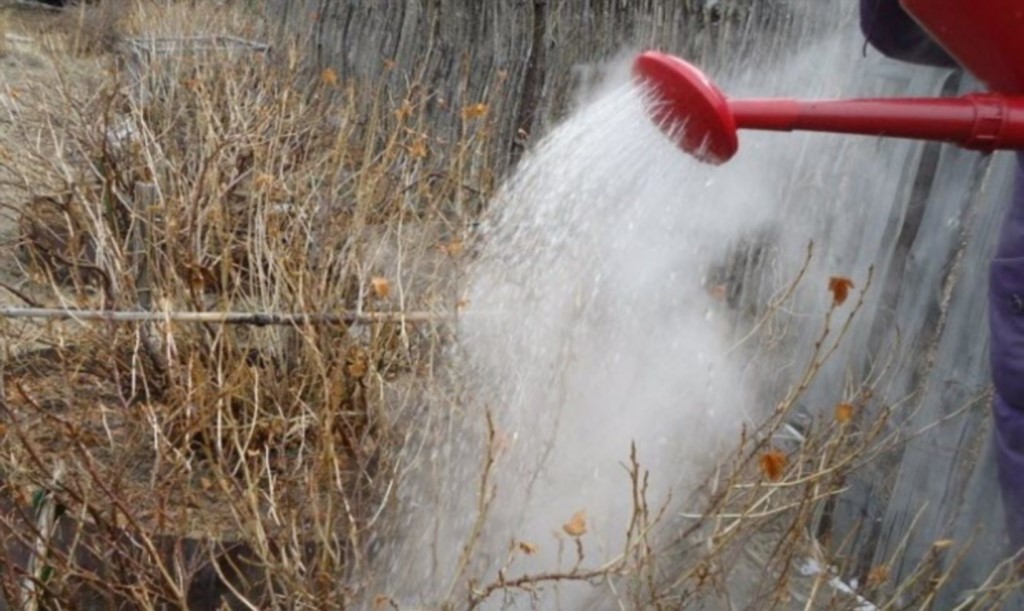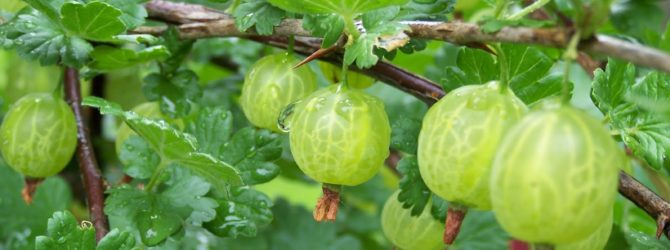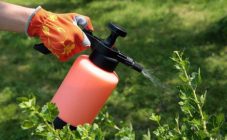Content:
In gardening, copper sulfate is used to protect plantings from diseases and garden pests. The chemical can also be used as fertilizer. The article will consider the use of this substance for the treatment of grapes, indicate the doses recommended by experts and the terms of use.
General information about the drug
Copper sulfate (a compound of sulfuric acid salts) is a crystalline powder with a bitter taste. In solid form, these are crystals of blue or blue color. They erode in the air.
A mixture of a substance with water, in which it dissolves well, gives copper sulfate. The drug has the following properties:
- disinfects wounds;
- used as an antiseptic.
This copper compound is used in medicine and agriculture. When processing plantings of various plants with vitriol, pests are destroyed, fungal infections are eliminated. Copper sulfate is part of the Bordeaux liquid, which is used as a fungicide, antiseptic or fertilizer when caring for various vegetables and fruit and berry crops.
The toxicity of copper sulfate for humans, livestock and poultry is relatively low. But when diluting a chemical, you must follow the instructions exactly, otherwise problems may arise. Fish and some insects are killed by the drug.
Application: advantages and disadvantages
To use vitriol in viticulture, the farmer needs to choose the right time and method of processing plants. It is necessary to adhere to the recommended dosages and safety standards, which are indicated on the label.
In the southern regions of Russia, the optimal processing time for grapes is mid-March. In the northern regions, spring spraying of plantings with vitriol can be delayed until April. This is due to the climatic conditions of the area where the gardener lives, the time the vines were removed from the winter shelters, as well as the state of the garden.
The processing of grapes with copper sulfate in spring is carried out at the following dosage:
- First, they do sanitary pruning, remove unnecessary shoots, the remains of old branches and leaves. The soil under the bushes must be loosened well.
- Then 50-100 g of vitriol is dissolved in 1 bucket of water. This composition is used to treat the soil under the bushes and vines. To obtain the desired concentration, the blue crystals are first diluted in a small volume of water, and then the rest of the liquid is added there.
- To make it easier to handle wood, 0.1-0.15 kg of liquid or laundry soap is introduced into the solution.
Spraying of bushes is carried out in dry weather. It is pointless to carry out this operation during the rain. The inability to use a pure vitriol preparation during the flowering of the bushes forced to invent analogues, devoid of the disadvantages of the chemical.
Experienced gardeners recommend the use of copper sulfate along with slaked lime.It is a Bordeaux liquid that is superior to a pure chemical in its effect on grapes. You can do it yourself:
- lime and vitriol are bred separately in non-metallic containers;
- combine both solutions, constantly stirring them;
- defend the resulting liquid for 4 hours;
- filter it, and then use it as intended.
To process bushes and soil in spring and on the eve of winter, use a 3% solution of Bordeaux liquid. During the development of plants in summer and autumn, spraying is carried out with a 1% mixture of the drug.
Benefits of copper sulfate:
- if a vineyard is processed with it, then the destruction of pathogenic bacteria and fungi is guaranteed;
- the drug is cheaper than other similar drugs.
Disadvantages of the chemical:
- pure vitriol can be sprayed on the vine and soil only before the appearance of greens, buds and ovary, as well as in preparation for winter;
- the use of this reagent should be carried out with solutions where the proportion between powder and water is precisely observed;
- violation of the processing time can lead to fruit poisoning after harvest.
Bordeaux liquid, in contrast to copper sulfate, in the proper concentration is used at any stage of the growing season. The vineyard is treated with this agent even when berries appear, since the toxicity of the drug is significantly reduced by lime. The appearance of leaves, flowering, development of the ovary force the grower only to change the concentration of the Bordeaux liquid solution within 1-3%.
Use in conjunction with other drugs
The treatment of grapes with copper sulfate can be supplemented by the use of other, similar chemicals. For this, iron sulfate is most often used. These 2 drugs reinforce each other, but they are only good for preventing disease. Both products are used only in spring and autumn, since when flowers appear, and then fruits, any inaccuracy in dosage leads to an increase in toxicity.
Iron sulfate is used at an early stage of processing: in February or March. It saves from spring frosts, destroys insects, if used before the flowers appear.
You can spray the vine with colloidal sulfur. It destroys insects well. Helps with diseases such as powdery mildew and gray mold. The drug is not poisonous, but it should not be used during flowering, otherwise the buds and leaves will fall off. The most correct method of using it for diseases is to smear damaged branches and leaves with a solution of sulfur. It is not recommended to use this chemical in conjunction with copper sulfate.
Urea is used for feeding grapes, as it contains a lot of nitrogen, which is necessary for plant development. To fertilize the bushes, you need to dilute in 1 bucket of water from 30 to 50 g of the substance. After flowering and during fruiting, this remedy cannot be used.
Garden pests are destroyed by spraying the grapes with a urea solution. This operation is performed in early spring. Use 500 g of substance per 10 L of water. The combined use of copper sulfate and urea is possible.
Vitriol, colloidal sulfur and urea cannot cope with some garden pests, but destroy their eggs and larvae. The main disadvantage of these funds is the inability to use them during flowering and fruiting of grapes, as this can lead to poisoning with berries after harvest.
Modern hybrid processing chemicals overcome this disadvantage. Breeders recommend using drugs such as sumilex, zineb, vectra and others. They cannot be used in conjunction with copper sulfate. Their main drawback is the high price. Their effectiveness depends on the correct dosage. Do not violate the instructions for use, which are given on the packaging of these products.
All the drugs described (urea, vitriol, sulfur) are cheaper than modern chemicals. But they can be used to eliminate diseases only in the initial stages. For a specific fight and treatment of infections that have struck grape bushes, it is worth choosing another remedy.
